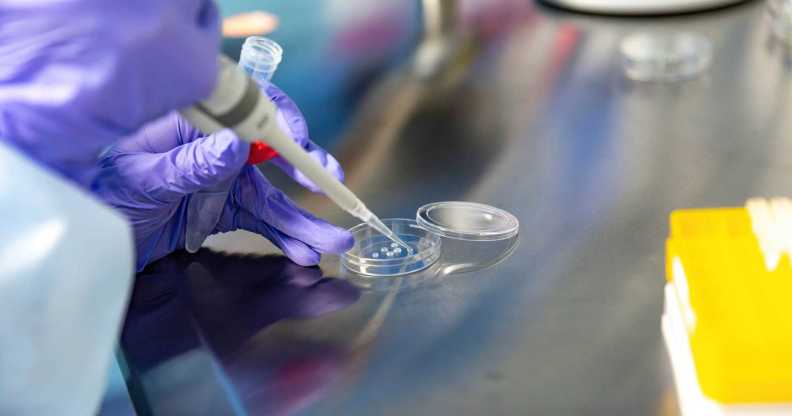Government guidance shows huge inequalities across UK for same-sex couples seeking NHS IVF

New information shared by the UK government shows deep disparities in access to IVF for female same-sex couples in regions in England. (Dominika Zarzycka/SOPA Images/LightRocket via Getty Images)
New information shared by the UK government shows deep disparities in access to IVF for female same-sex couples in regions in England.
On Friday (18 August), the Department for Health & Social Care released guidance on NHS-funded in vitro fertilisation (IVF) in England, outlining the policies which dictate funding decisions by integrated care boards (ICBs).
It reveals the hugely variable policies in different regions of the country, including who is eligible, how many rounds of IVF will be funded by the NHS and how many self-funded cycles female same-sex couples must have paid for before the NHS will help.
In essence, there is a postcode lottery for fertility access in England.
The new guidance comes less than a month after equality campaigners Whitney and Megan Bacon-Evans withdrew their judicial review legal challenge against NHS Frimley Integrated Care Board, after it announced it would introduce a new policy to tackle inequality faced by same-sex female couples in accessing NHS funding for fertility treatment.
Legal action was brought by the couple after they found their local ICB required them to self-fund 12 rounds of artificial insemination – six of which had to be intra-uterine insemination (IUI) in a clinical setting – before they could qualify for NHS support.
Heterosexual couples, however, only have to prove that they have being trying to conceive for two years, which comes at no financial cost.
Costs for self-funded IVF vary, but currently one round of treatment could set you back £5,000.
IVF polices vary wildly
The government’s guidance shows that how many rounds an ICB is willing to fund depends on what area of the country you live in.
For example, in Birmingham and Solihull, Cambridgeshire, Peterborough and Lincolnshire, only one round will be funded. However, if you live in North Central London, North East and North Cumbria or Sussex you are given three rounds of treatment.
In order to even get the funding, you will have to prove you have unsuccessfully self-funded cycles of artificial insemination. In South East London this is three rounds, in Surrey Heartlands it is six, in Bristol, North Somerset and South Gloucestershire it is 10, and Cornwall and the Isles of Scilly, 12.
These wild variations mean people living in different areas will be forced to pay substantially different amounts – dubbed the “gay tax” by campaigners – to access funding.
Those in the most restrictive areas, for which proof of 12 rounds of self-funded IVF is required, could be set back an astronomical £60,000 – a figure few can realistically afford.
Alongside this, while a number of ICBs offer IVF funding for people up to the age of 42, some cut off at 39 or 40 – one has a cut off point for people aged 35.
Commenting on the data, Meg Murray Jones of Postpartum Plan said: “IVF can be an extremely challenging process with patients needing additional physical and emotional support throughout.
“Our current NHS IVF criteria are restrictive, especially for same-sex couples, and we were shocked to see how each region differed based on the support and funding available.
“More work needs to be done to provide a duty of care to people wanting to go on their fertility journey, and offer ongoing support throughout and after the process”.
How did this story make you feel?

